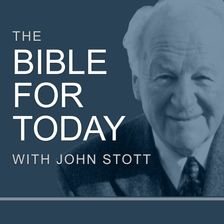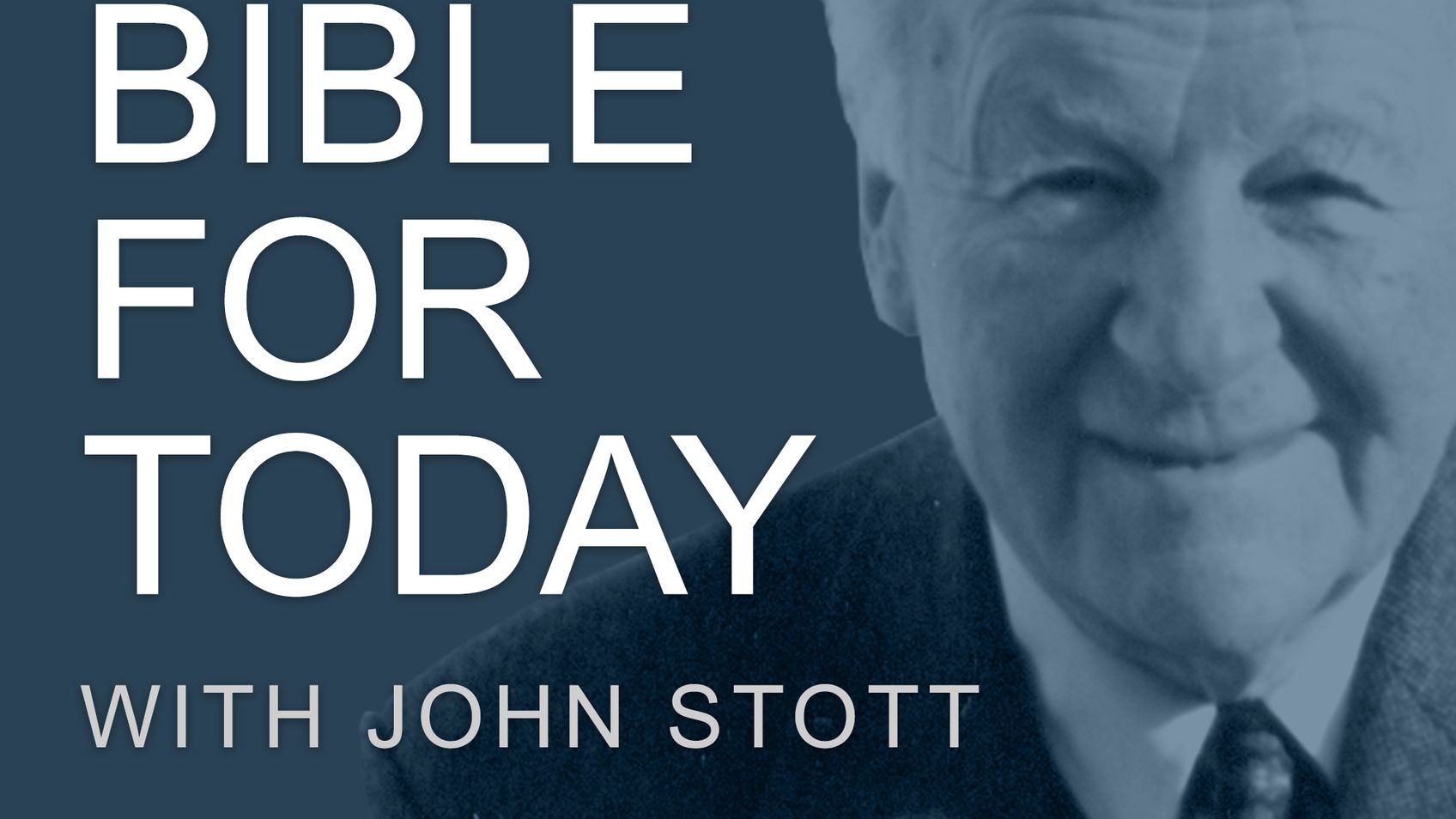The Cross and God - Part 2
June 13, 2021

The Bible for Today with John StottPremier
John Stott explains that God's love is shown to us by the action he took in giving the most valuable gift possible in the person of His son Jesus.
More From The Bible for Today with John Stott

The Bible; Trustworthy or Fallible? - Part 1
The Bible for Today with John Stott
June 20, 2021
John Stott shows that in a world of relativism there is absolute truth to be found in the Bible, and why the Bible can be seen to be completely infall

The Bible; Trustworthy or Fallible? - Part 2
The Bible for Today with John Stott
June 27, 2021
John Stott investigates how of the thousands who saw Jesus when He was on earth, some wrote eye witness accounts which we now have as the four Gospels

God of Love - Part 1
The Bible for Today with John Stott
July 4, 2021
John Stott explains why we will never truly know what it is to be a human being unless we know the God who made us and why there is a huge difference

The Cross and God - Part 1
The Bible for Today with John Stott
June 6, 2021
John Stott shows how that the cross of Christ is not only a deed done for us but a word spoken to us. The cross demonstrates God's love to us despite

Jesus Christ: Tried, Tested And Proven - Part 2
The Bible for Today with John Stott
May 30, 2021
John Stott shows that although we have never seen Jesus, there were many who did when He was on earth. Some of those people wrote down eye-witness acc

Jesus Christ: Tried, Tested And Proven - Part 1
The Bible for Today with John Stott
May 23, 2021
John Stott investigates how the church went from being a handful of people that Jesus gathered around Him to the world-wide phenomenum it is today.
More on OpenTheo

Why Does the Bible Teach You How to Be a Proper Slave Owner?
#STRask
November 13, 2025
Question about why it seems like the Bible teaches you how to be a proper slave owner rather than than saying, “Stop it. Give them freedom.”
* It s

Why Would Any Rational Person Have to Use Any Religious Book?
#STRask
December 8, 2025
Questions about why any rational person would have to use any religious book, whether apologetics would be redundant if there were actually a good, un

Why Are So Many Christians Condemning LGB People Just Because of How They Love?
#STRask
January 15, 2026
Questions about Christians condemning LGB people just because of how they love, how God can expect someone to be celibate when others are free to marr

E. Calvin Beisner: Climate and Energy Policy
Knight & Rose Show
January 4, 2026
Wintery Knight and Desert Rose welcome Dr. E. Calvin Beisner to discuss climate and energy policy. They explore Biblical dominion and stewardship, con

The Making of the American Mind with Matthew Spalding
Life and Books and Everything
February 2, 2026
The United States is unique in how much attention it pays to its founding, its founders, and its founding documents. Arguably, the most famous and mos

What Are Some Good Ways to Start a Conversation About God with Family Members?
#STRask
October 30, 2025
Questions about how to start a conversation about God with non-Christian family members, how to keep from becoming emotional when discussing faith iss

Are You Accursed If You Tithe?
#STRask
December 15, 2025
Questions about whether anyone who tithes is not a Christian and is accursed since Paul says that if you obey one part of the Mosaic Law you’re obliga

How Can I Explain Modesty to My Daughter?
#STRask
November 27, 2025
Questions about how to explain modesty to a nine-year-old in a way that won’t cause shame about her body, and when and how to tell a child about a pre

Lora Ries: Border Security and Immigration Policy
Knight & Rose Show
December 7, 2025
Wintery Knight and Desert Rose welcome Lora Ries to discuss border security and immigration policy. They explore Biden's policy changes, like ending R

Is 1 Corinthians 12:3 a Black-and-White Tool for Discernment?
#STRask
October 27, 2025
Questions about whether the claim in 1 Corinthians that “no one can say ‘Jesus is Lord’ except in the Holy Spirit” is a black-and-white tool for disce

Prove to Me That Jesus Is Not a Created Being
#STRask
January 26, 2026
Questions about why we should think Jesus is not a created being, and what it means to say God became fully human if part of being human means not bei

Keri Ingraham: School Choice and Education Reform
Knight & Rose Show
January 24, 2026
Wintery Knight and guest host Bonnie welcome Dr. Keri Ingraham to discuss school choice and education reform. They discuss the public school monopoly'

Is It Possible There’s a Being That’s Greater Than God?
#STRask
February 5, 2026
Questions about whether it’s possible there’s a being that’s greater than God and that’s outside of God’s comprehension and omniscience, and how to ex

Why Is It Necessary to Believe Jesus Is God?
#STRask
February 19, 2026
Questions about why it’s necessary to believe Jesus is God, whether belief in the Trinity is required for salvation, and why one has to believe in the

Conservatism and Religious Freedom with John Wilsey
Life and Books and Everything
October 27, 2025
What is conservatism? And why does it go hand in hand with religious freedom? How should we think about the American experiment of ordered liberty? Ha
